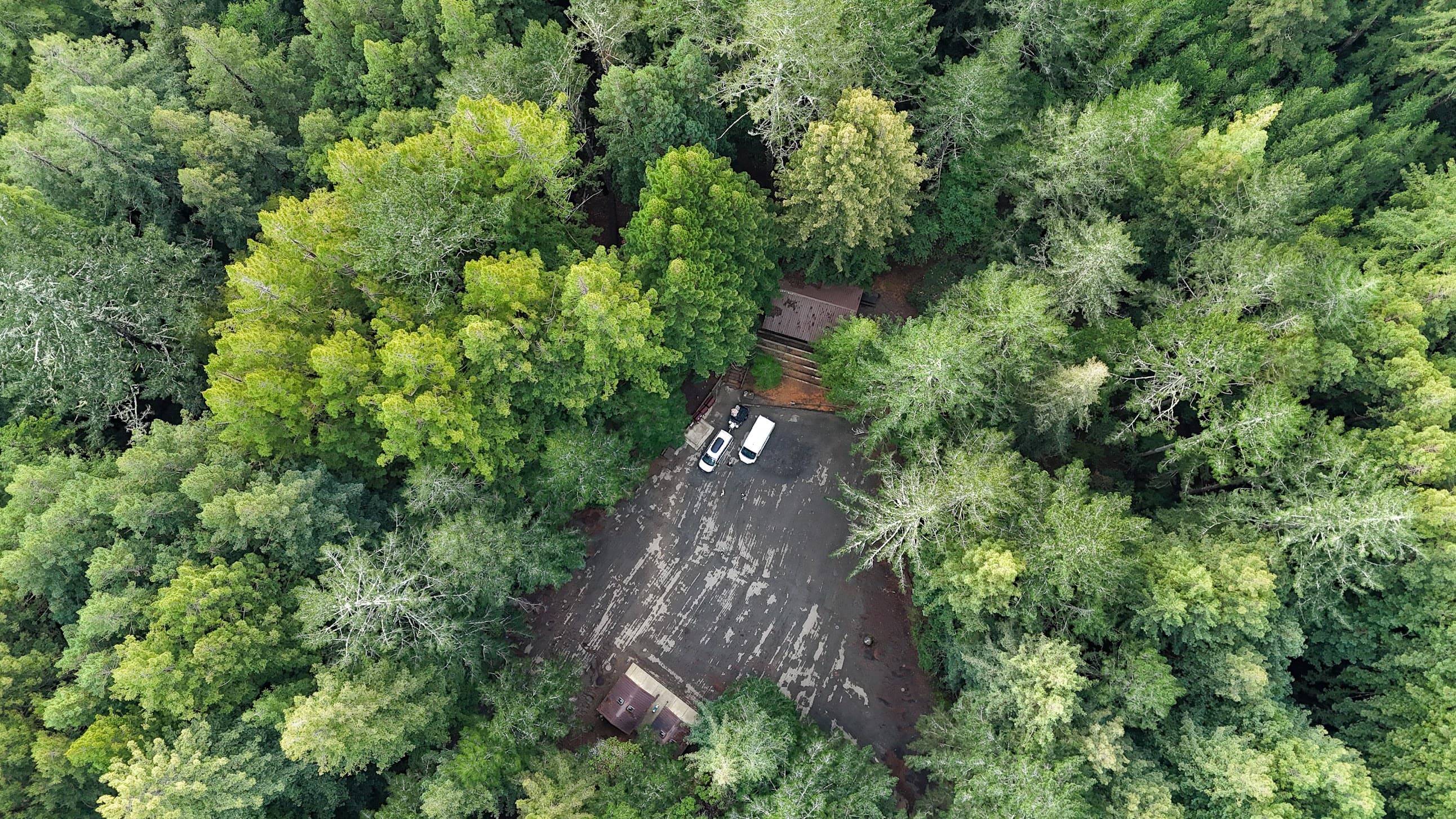
Public Lands: Our Shared Heritage
Why Outdoorithm Collective is committed to camping on public land
America's public lands are more than just beautiful places – they are vital civic spaces where diverse communities can come together, connect with nature, and build lasting bonds. At Outdoorithm Collective, we believe deeply in the power of public lands to strengthen the fabric of our society.
"We need to build a civic infrastructure for a shared life where people encounter one another... in public parks and recreation areas. The inadvertent class mixing can create habits, attitudes, dispositions, that remind us of our commonality."
— Thomas Piketty & Michael Sandel
Equality: What It Means and Why It Matters
The Power of Shared Experiences
Working together to set up camp, cook meals, and navigate the elements creates bonds that structured conversations cannot.
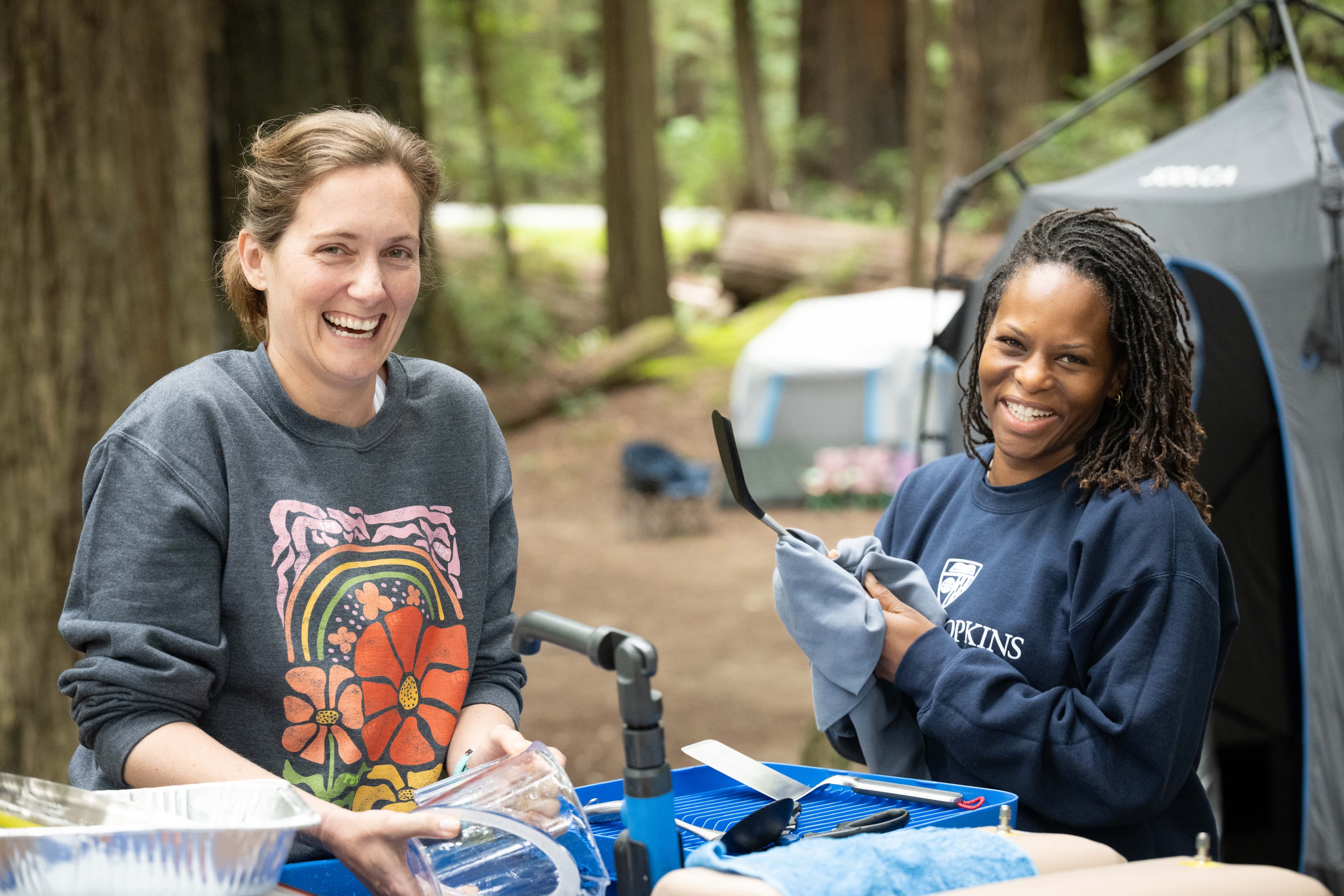
Sharing chores, sharing stories
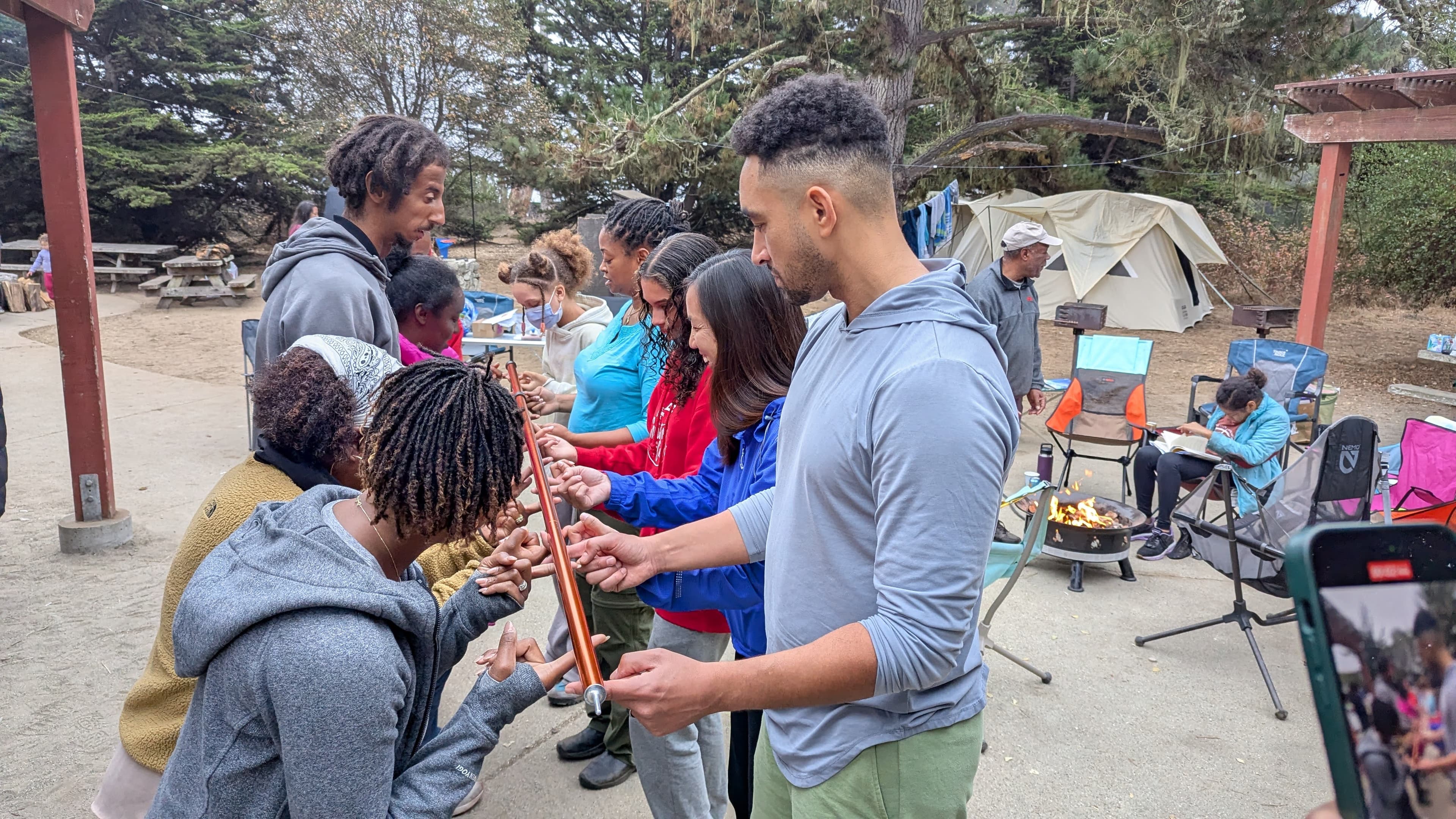
Building trust together
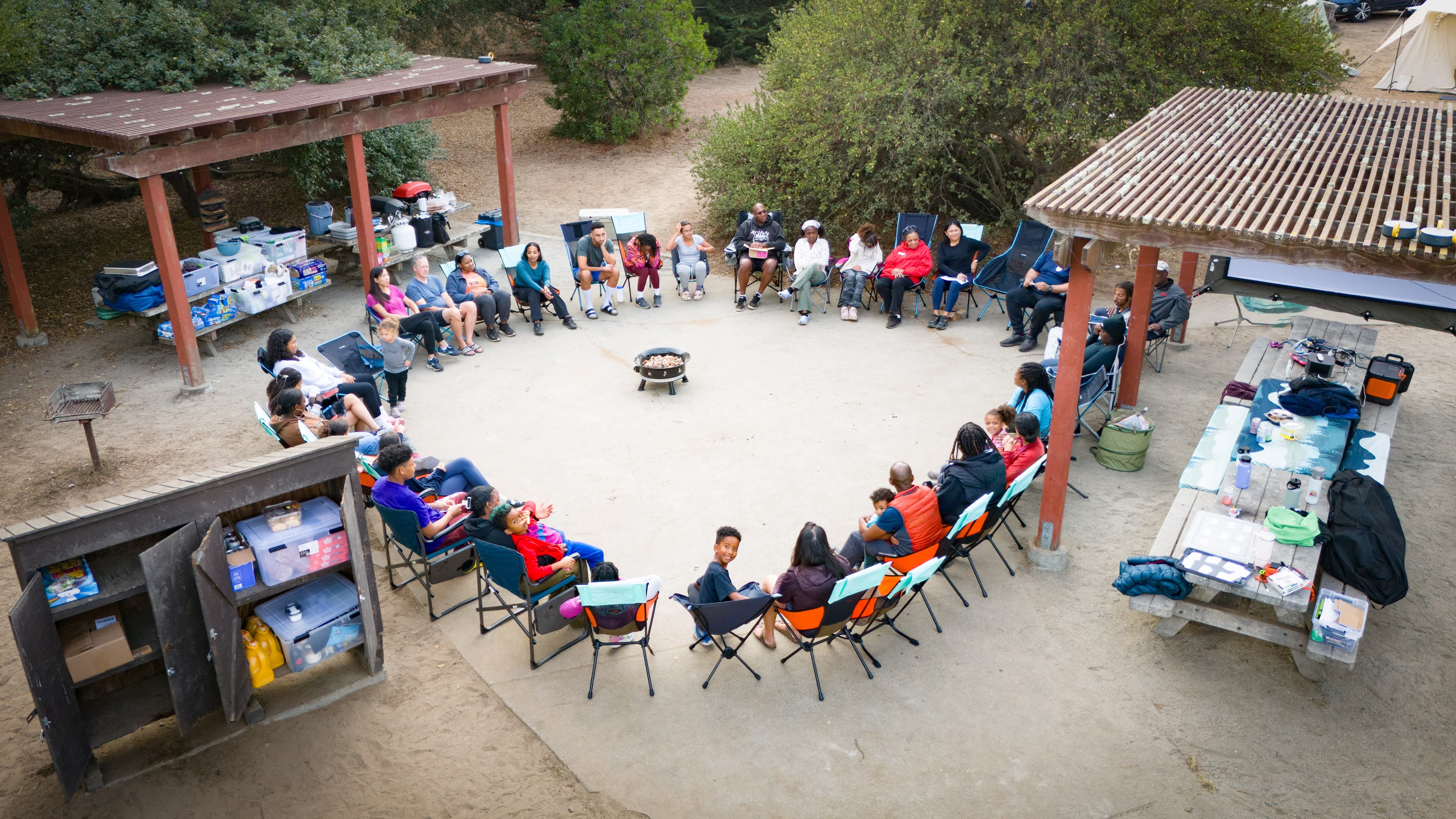
Gathering across generations
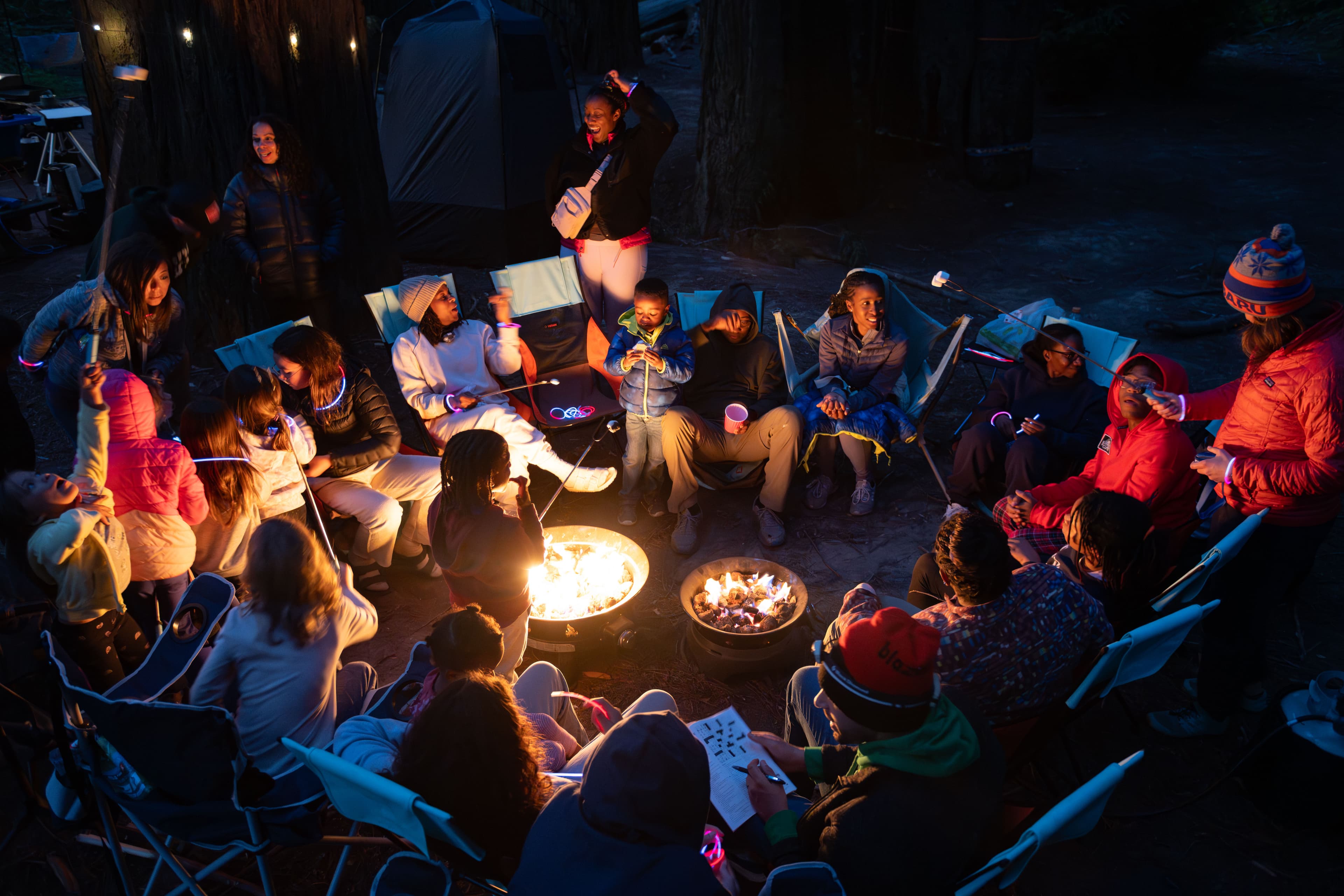
Stories by firelight
"In the past, I have not felt welcome or safe in National Parks... Outdoorithm has changed that for me and my family. During our first trip, we slept in the tent & I went to sleep to the sound of the ocean. It was the most restorative sleep I have had in years."
— Valencia Miller
"There are very few times as a Black man that I feel comfortable in the woods. Being able to feel safe camping changes the narrative that being in the woods is not something 'that Black people do.'"
— Carl
A Rare Space for Connection
Today's campers across the United States represent the diversity of America
have household incomes under $50,000
Geographic Diversity
represent all geographic areas
of new campers are people of color
Can you think of another public space where this kind of multi-day immersion creates real relationships across these divides?
Public land camping is uniquely powerful for bridging the divides that fragment our society.
The Evidence
Research shows that public spaces strengthen communities and democracy.
Parks Build Trust in Government
People near public parks report 29% greater satisfaction with local government, fostering civic engagement.
Parks Build Cross-Class Friendships
Residents near quality parks are 26% more likely to form friendships across socio-economic divides.
Civic Infrastructure Reduces Inequality
Leading scholars Thomas Piketty and Michael Sandel argue that reducing economic and political inequality depends first on creating "equality of social relations"—dignity, status, and mutual recognition. Public spaces that bring people together are essential civic infrastructure.
Equality: What It Means and Why It Matters →


